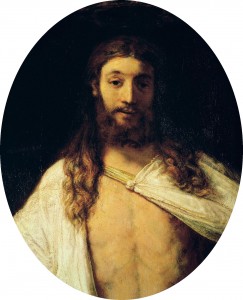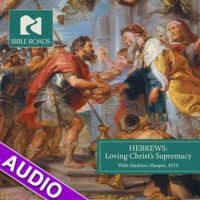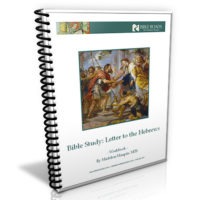The term “priest” is one of those Biblical words that seem pretty far from our working mental or verbal vocabulary. After all, when’s the last time anyone had to kill a sheep and carry it to an altar?
Yet this is the second blog in a row with a priest at its center, with one on “Ezra” immediately proceeding. The reason is Easter. How can we continue to think in fresh ways about Christ Jesus’ resurrection? Whether we’re approaching Easter, or are in the days and weeks following the commemoration of that world-changing event, the Master Christian’s life inspires us through fresh Biblical insights—this time from the “Letter to the Hebrews”.
The “Hebrews” author identified a late 1st century challenge common today: spiritual drift. As Christians began to tire of the demands to follow Christ Jesus’ teachings, the “Hebrews” writer lifted up the role of Christ Jesus as priest to address it. See “Hebrews”’ chapters 3 – 10 for how this theme is developed as both a message of encouragement and a wake up call from spiritual stupor.)
This designation of Christ Jesus as a “merciful and faithful high priest” (Heb. 2:17) is the only time the title is used in the New Testament. It implies that Christ is the heavenly intercessor between God and man, revealing God’s loving nature to transform the most earthly of circumstances– rebuilding the lives of lepers, sinners, tax collectors, etc.
Also this is no ordinary priest because he is “after the order of Melchizedek”, that heavenly, eternal being that appeared first to Abraham (see Gen. 14:17-20). While there isn’t time to go into the implications of such a priestly, heavenly order, my hope is that this brief description will be an incentive for you to research this further.
Priests were in charge of sacrifices, just as Aaron was during Moses’ day and the Sadducees were in the first century of Herod’s Temple. They were also faithful to God, honoring Him with devotion and obedience. In this way Christ Jesus was both priest and sacrifice, knowingly sacrificing an earthly body so he could prove eternal life, not death, is ultimately victorious.
Is the author of the “Letter to the Hebrews” pointing out that, as Christ Jesus’ followers, we too must sacrifice that ‘old man’, as Paul called it, to discover ‘the new man’. This dissolves whatever would stand in the way of entering into the holy of holies, and experiencing God’s tender presence–just as the high priest did annually on behalf of the people.
Today such a sacrifice might be giving up long-held opinions, habits, attitudes whose self-renunciation would have the very purifying effect the Hebrews’ writer knew would wake one out of a stupor of self-indulgence, bringing spiritual drift to a screeching halt. As Heb. 10:18 explains: I’ll forever wipe the slate clean of their sins. And so Christ does just that. (The Message, Hebrews 10: 11-18)
Maybe this is what the “Hebrews” author knew all along. Then the seed of Christ as priest will help us enter ‘the holy of holies’ for ourselves.





Thank you, Madelon. At first I caught myself thinking wouldn’t it be wonderful if you could do away with a bad habit just as easily as sacrificing something (although I couldn’t stand to hurt anything), but what if you could take your bad habit and just WACK! and it’s gone. And then I got to thinking that yes it really should be that easy. We have Jesus’ example, we know that God is all powerful, we know we can’t be separated from good, so we should be able to stamp our foot, shout NO! and know that that is the… Read more »
Thank you Madelon for opening the door to Ezra the priest. I have always enjoyed Nehemiah and his role in rebuilding not just he wall but people’s lives. I liked ” the people gathered themselves together as one man to Jerusalem” Ch 3:1 in thinking of our unity of Spirit as we go forward in our branch church journey. The link to Hebrews (one of my favorite books) I find so helpful as we awake from the spiritual drift of letter and legalism to the joy of spiritual wholeness individually and in our community and church.